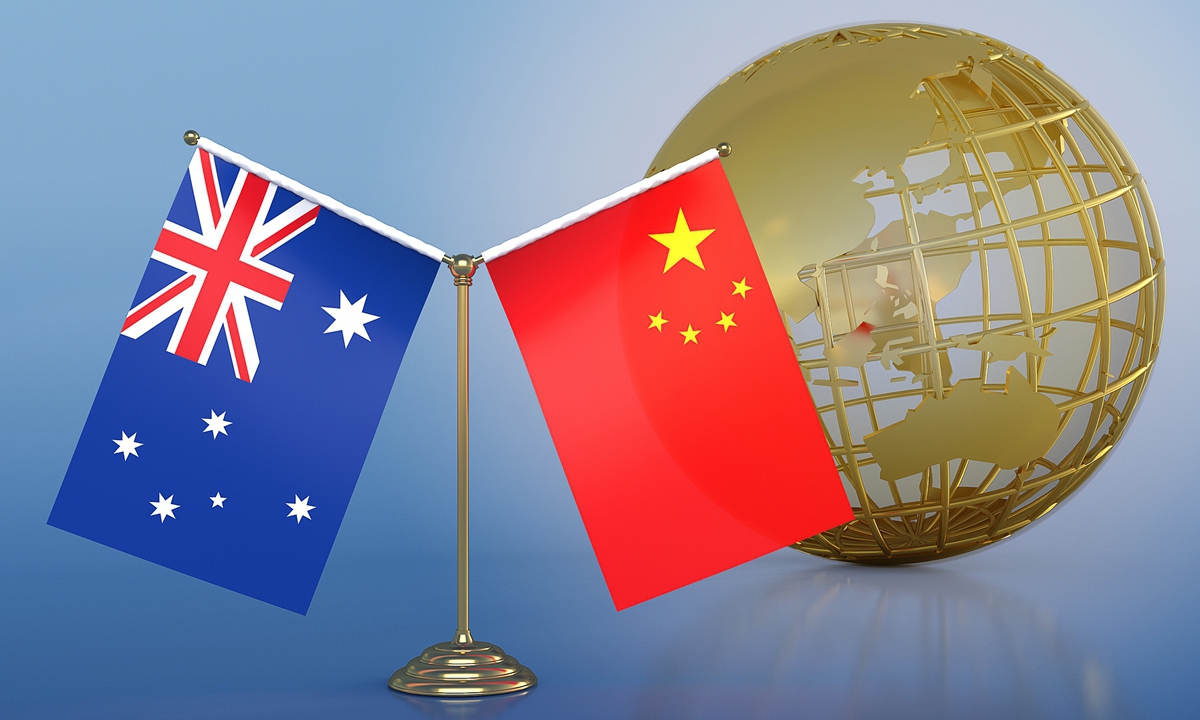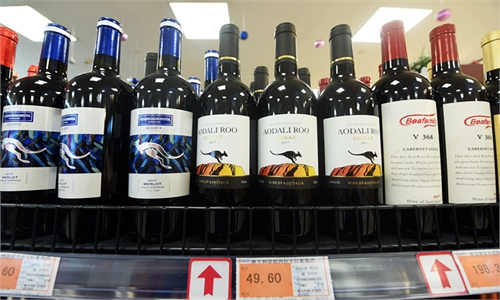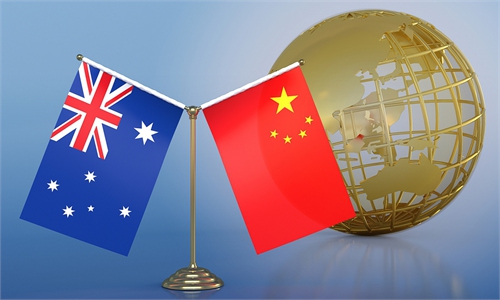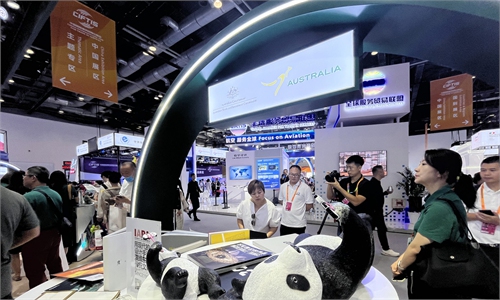
China Australia Photo: CFP
Australian Treasurer Jim Chalmers will visit China from Thursday to Friday and co-chair the 4th China-Australia Strategic Economic Dialogue with Zheng Shanjie, head of China's National Development and Reform Commission (NDRC), the NDRC announced on Wednesday.The Australian Treasury provides advice on issues such as the economy, budget and foreign investment, according to its website.
The visit to China by Chalmers, the first such visit in seven years, signals a furthering of the high-level interactions between China and Australia under the guidance of the head-of-state diplomacy, analysts said. It shows that the two countries are focusing on achieving more concrete results on economic and trade issues amid an overall improvement of bilateral relations after years of fraught ties.
As one more high-level meeting following Chinese Premier Li Qiang's fruitful visit to Australia in June, Chinese observers said the Chalmers visit shows that bilateral relations have been running on the track of constant stabilization and improvement.
In June, as one of the outcomes of Premier Li Qiang's visit to Australia, the two sides announced plans to resume the Strategic Economic Dialogue within 2024 that will focus on strategic and forward-looking trade and economic topics, broader communication and exchanges, and promoting pragmatic and effective economic cooperation.
Observers said during the strategic dialogue that the two sides may engage in topics such as the facilitation of trade and investment, regional economic integration, and the harmonization of trade rules while minerals, artificial intelligence and cross border flow of data could also be among issues to be addressed.
Financial cooperation, such as expanding the scale of yuan clearing arrangements, may also be on the table.
Yu Lei, a professor from the Department of International Politics and Economics at Shandong University, told the Global Times on Wednesday that the Australian government, facing ongoing economic pressure, is seeking to expand exports of its products to China, Australia's largest trading partner.
The Australian economy is suffering from downward pressure after consecutive interest rate rises by the country's reserve bank, in lock step with the US Fed, which have dampened business activity. Along with inflationary pressure, and a deliberate shunning of Chinese imports by the Australian government, Australians face rising living costs, especially for daily necessities, Yu said. "The Chinese side may require Australia to lower its trade barriers for daily necessity imports, thus benefiting both countries."
In 2021, the NDRC, China's top economic planning agency, suspended activities under the China-Australia Strategic Economic Dialogue "based on the attitude of the Australian government toward China-Australia cooperation," according to a post on NDRC website in May 2021.
Amid improving ties since the election of Prime Minister Anthony Albanese in May 2022, business exchanges and cooperation between China and Australia has gained momentum.
At the recently concluded 2024 China International Fair for Trade in Services in Beijing, 20 Australian companies, organizations and institutions, including renowned Australian universities, made their presence to look for opportunities to boost cooperation with what they called as Australia's "critical" trade and investment partner. Their attendance vastly outnumbered that of the previous year, when just one Australian company attended.
Yu noted that Australia's unnecessary restrictions on Chinese investment is the main reason behind the steep decline in Chinese business activity in the country.



